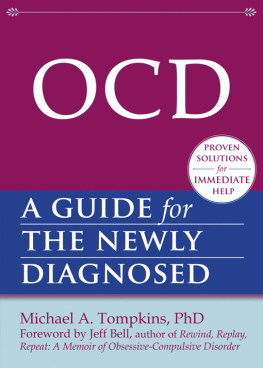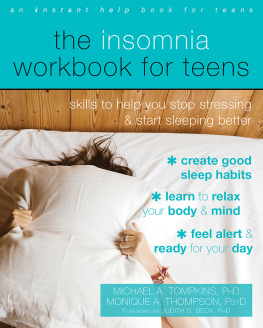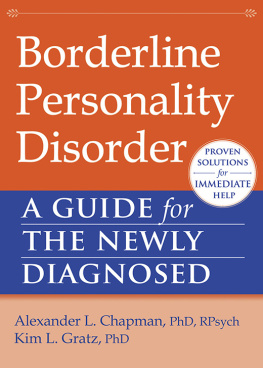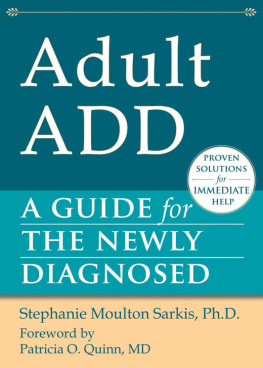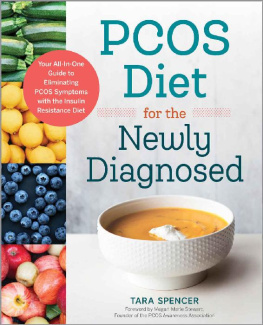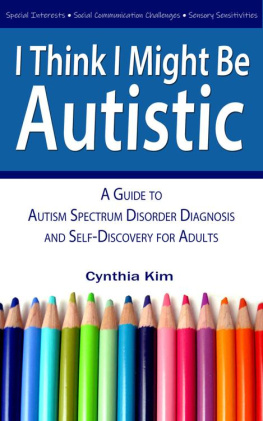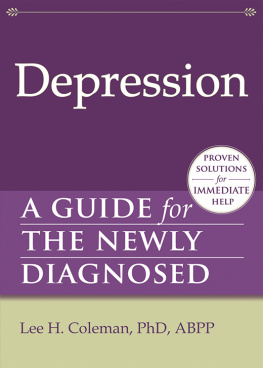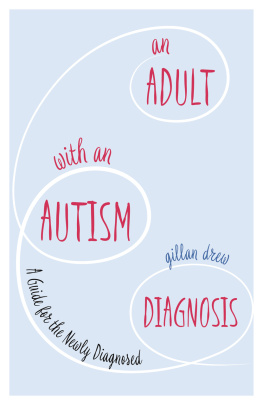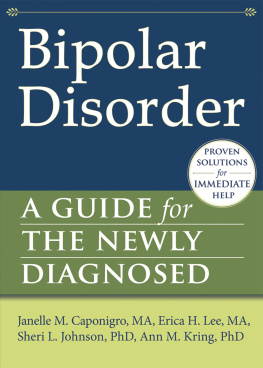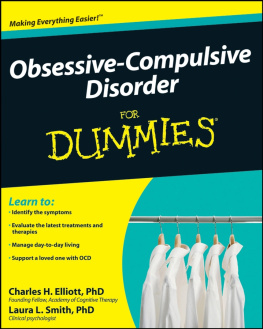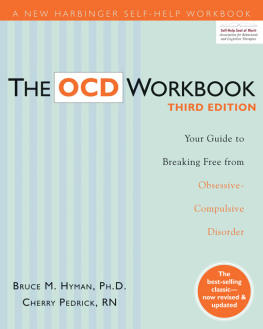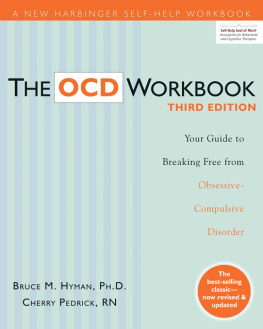
Michael A. Tompkins, PhD, specializes in the treatment of anxiety disorders. He is a founding partner of the San Francisco Bay Area Center for Cognitive Therapy and diplomate of the Academy of Cognitive Therapy. He is also assistant clinical professor at the University of California, Berkeley. He is author of Digging Out, was featured in the New York Times and the Wall Street Journal, and has appeared as a psychologist on TLCs Hoarding: Buried Alive and A&Es Hoarders. He lives in Oakland, CA.
Foreword writer Jeff Bell is author of Rewind, Replay, Repeat: A Memoir of Obsessive-Compulsive Disorder. He serves as a national spokesperson for the International OCD Foundation and is founder of the Adversity 2 Advocacy Project. Bell lives in Benicia, CA.
Michael A. Tompkins book, OCD: A Guide for the Newly Diagnosed, is a very helpful resource for those suffering from obsessive-compulsive disorder. In clear, direct language, Tompkins helps the consumer understand the nature of OCD, what treatment will involve, how to find the right therapist, and how to work effectively toward coping with this difficult problem. People with OCD and their families will find this book to be useful.
Robert L. Leahy, PhD, director of the American Institute for Cognitive Therapy
What a terrific book for individuals who have the very real illness of OCD, whether or not they have started treatment. This highly readable and practical book is also an important resource for families and friends who dont understand this often mystifying disorder or know what to do to help. I recommend it highly!
Judith S. Beck, PhD, president of the Beck Institute for Cognitive Behavior Therapy and clinical associate professor of psychology at the University of Pennsylvania
OCD: A Guide for the Newly Diagnosed gives those who have been recently diagnosed with OCD a head start on treatment. It addresses their and their families many questions and worries triggered by the diagnosis. Thereby, immediate support and anxiety reduction are available. In addition, the guide offers clinicians a wealth of information that can be readily made available to their patients. I strongly recommend this book to patients, families, and mental health professionals.
Paul R. Munford, PhD, clinical psychologist and director of the Cognitive Behavior Therapy Center for OCD and Anxiety in San Rafael, CA
Publishers Note
Care has been taken to confirm the accuracy of the information presented and to describe generally accepted practices. However, the authors, editors, and publisher are not responsible for errors or omissions or for any consequences from application of the information in this book and make no warranty, express or implied, with respect to the contents of the publication.
The authors, editors, and publisher have exerted every effort to ensure that any drug selection and dosage set forth in this text are in accordance with current recommendations and practice at the time of publication. However, in view of ongoing research, changes in government regulations, and the constant flow of information relating to drug therapy and drug reactions, the reader is urged to check the package insert for each drug and consult with their health care provider for any change in indications and dosage and for added warnings and precautions. This is particularly important when the recommended agent is a new or infrequently employed drug.
Some drugs and medical devices presented in this publication may have Food and Drug Administration (FDA) clearance for limited use in restricted research settings. It is the responsibility of the health care provider to ascertain the FDA status of each drug or device planned for use in their clinical practice.
Distributed in Canada by Raincoast Books
Copyright 2012 by Michael Tompkins New Harbinger Publications, Inc. 5674 Shattuck Avenue Oakland, CA 94609 www.newharbinger.com
Cover design by Amy Shoup; Text design by Michele Waters-Kermes; Acquired by Melissa Kirk; Edited by Elisabeth Beller
All Rights Reserved.
ePub ISBN: 978-1-60882-641-4
The Library of Congress has cataloged other formats of this work as:
Tompkins, Michael A.
OCD : a guide for the newly diagnosed / Michael A. Tompkins.
p. cm.
Includes bibliographical references.
ISBN 978-1-60882-017-7 (pbk.) -- ISBN 978-1-60882-018-4 (pdf e-book)
1. Obsessive-compulsive disorder--Popular works. I. Title.
RC533.T66 2012
616.85227--dc23
2011039655
For Luann
Foreword
In the vernacular of the mental health world, I am an OCD consumer, which is to say, I am someone who has undergone treatment for obsessive compulsive disorder. That Michael Tompkins would turn to me, a consumer, and not one of his many esteemed colleagues to write this foreword speaks volumes about the book you are holding in your hands. It says, loudly and clearly, Lets get practical about OCD and its treatment. Lets cut to the chase about what people with OCD most need to know about this disorder and how to recover from ithow refreshing!
As someone who spent years struggling with and seeking treatment for an affliction that neither I nor my first two therapists understood, I know firsthand the importance of all three of the very practical objectives Dr. Tompkins spells out and pursues in this book: understanding, support, and education. And as someone who was fortunate enough to have found all of these, I can say with confidence that the sense of hope Dr. Tompkins conveys is very real. I am living proof that someone who once battled severe OCD can regain his or her life. Whereas at my worst, I could barely leave my house, today I am a successful radio news anchor and mental health advocate, traveling coast to coast, generally unhindered by the obsessions and compulsions that once plagued me. But the way out, as Dr. Tompkins describes recovery, is not easy. It is a road filled with countless hazards and steep uphill stretches. Andhaving learned this the hard wayI appreciate very much that this book makes clear that there are no shortcuts.
Over the past several years, Ive come to share what you might call a tough love message in my OCD outreach, reminding my fellow consumers that, ultimately, the success or failure of their recoveries lies largely in their own hands. Its a harsh reality, perhaps, but an undeniable one. Dr. Tompkins reinforces this in every chapter ahead; but he also goes one very significant step further, offering a series of practical tools, suggestions, and resources for individuals with OCD and their loved ones to use at every turn. So when he talks about the value of understanding OCD, he provides the scientific background, personal anecdotes, and vocabulary necessary to do so. When he speaks of the need to get a correct diagnosis, he describes in detail what to expect during the evaluation process. And when he stresses the importance of finding the right therapist, he suggests where they can be found. In this fashion, Dr. Tompkins empowers his readers, page by page, to regain control of those aspects of their lives that OCD has likely stolen from them.
My own personal journey to OCD recovery has been an especially circuitous one. I stumbled my way through the mental health system, asking poor questions of the first two therapists I saw, accepting misdiagnoses for far too long, and refusing to do the hard work of OCD treatment once I found my way to it. I cant help but wonder now what my journey might have looked like had I been fortunate enough to have had a copy of this very book at my disposal all those years ago. Ill never know for sure, but of this I am certain: the extremely clear roadmap Dr. Tompkins has developed and shares here can serve as a powerful guide not only for newly diagnosed OCD consumers, but also for their friends and relatives and even therapists. Whichever

